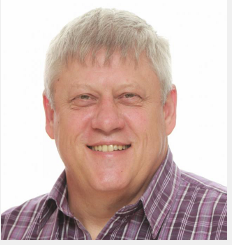Pieter

Pieter de Villiers chuckles as he relates the story of how he ended up in finance.
“In 1978, my school bookkeeping teacher – an old toppie – told me I should become an accountant. I didn't want to. I wanted to become an engineer. So, I went to university to study civil engineering, but it didn't last long. After six months, I phoned the army and said, ‘Do you have room for me?’ And they said, of course. So, when I finished my stint with the army, I started in finance.”
Pieter was a financial controller for various business segments at Royal HaskoningDHV for 16 years and since Jan 2021 he is in a new role as continuous improvement manager.
What excites Pieter most about coming to work is the people he works with and those whose lives the company impacts. “One of the things the company stands for is making a positive impact. And I like that. The other thing I like is that the staff – colleagues, line managers, financial partners, project managers, and so forth – all work together to deliver what we do. I was never interested in becoming an auditor – checking on what people did – but here, you’re part of what is being done.”
It's good to know you’re appreciated
When asked of a moment in his career that stands out for him, the pride in his voice is evident. “A couple of years ago, a team of us, together with our legal counsel, were able to add significant value to a partner on a SANRAL tender. The lead consortium partner had missed an important part of the tender conditions related to liability. The team proposed a solution that materially reduced the risk. That’s when I realised my experience has value and that it’s appreciated. It’s good to know that.”
The company ethos is what attracted Pieter to RHDHV. Well, that, and the two people who interviewed him back in 2006 – Vidar Johannessen and Pieter van Niekerk. When asked why, Pieter says, “they’re nice people to work with, as they are engaged!”
Adding value is a key motivator for Pieter. Working alongside his colleagues, project managers, and business partners, interacting with them, and being a valuable part of the team directing the business makes him thrive.
“There is satisfaction in adding value,” he says, “I mean, if you are part of the team and don't add value, you question why you are there. But if you add value, and you have that satisfaction that the business benefited, or this person benefited by what you've contributed, then that is satisfying.”